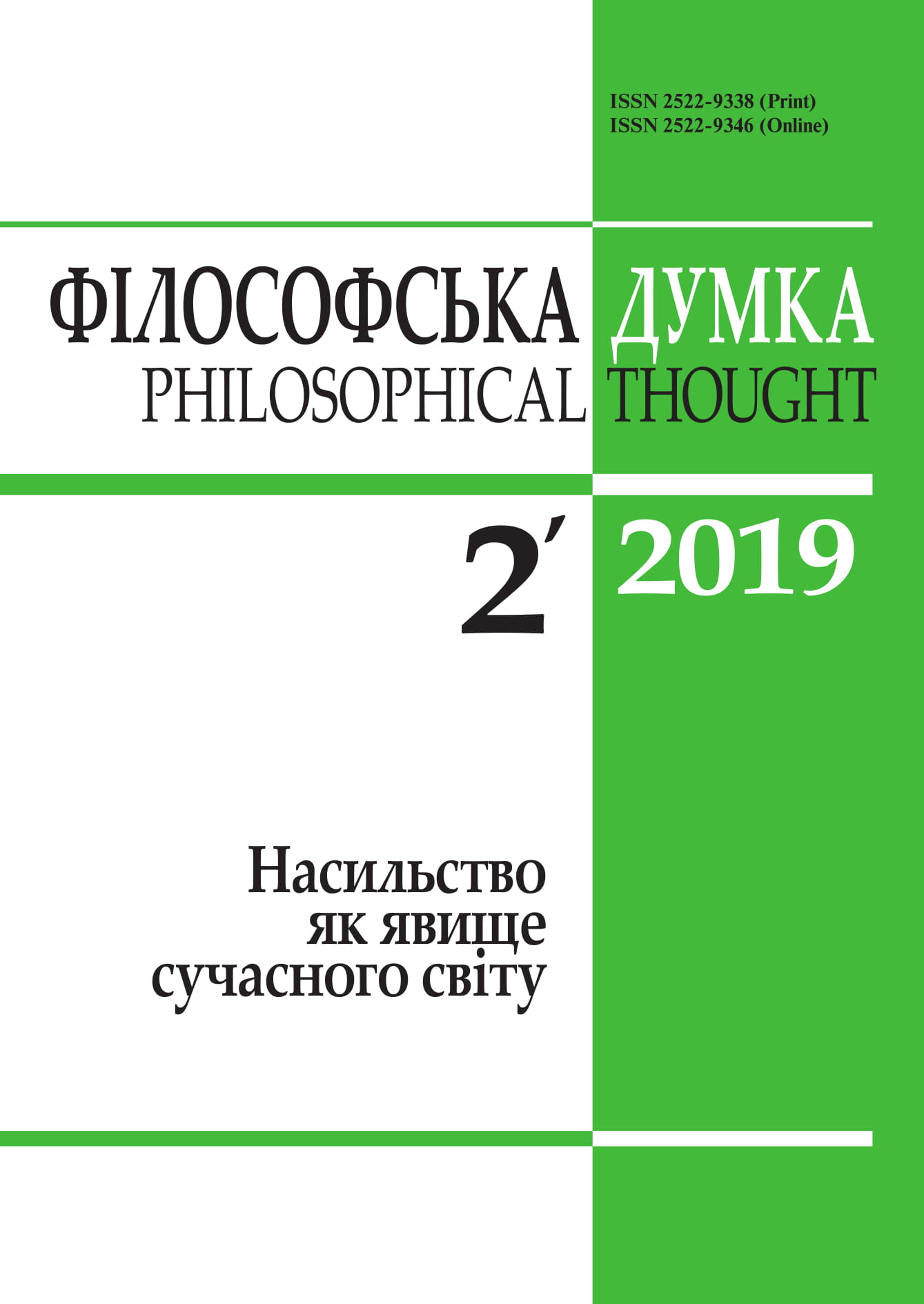Класична філософія під ціннісно-історичним кутом зору
Ключові слова:
класика, класична філософія, філософське співтовариство, ідеальний тип, історико-філософські дослідження, культурна значимістьАнотація
Стаття присвячена проясненню значення поняття «класична філософія», яке у сучасній філософській науковій та навчальній літературі вживається зазвичай непроблематично. Автор доводить, що те значення, у якому використовується це поняття, неприйнятне для ефективних історико-філософських досліджень, оскільки воно вироблене в межах підходів до експлікації класики, що виникли на основі осмислення матеріалу мистецтва. Зокрема, класична філософія не може бути ні зразком для наслідування, ні тим, що належить виключно минулому, ні окремим типом філософії. Головна ідея статті полягає у тому, що поняття «класична філософія» можна розглядати в соціокультурному і в методологічному аспектах. Класична філософія — це значима й актуальна основа сучасного філософствування і водночас це засіб упорядкування величезного за обсягом емпіричного матеріалу з певного дослідницького ракурсу. У статті доводиться, що застосування такого методологічного інструментарію, як ідеальний тип «класична філософія», дозволить уникнути істотних проблемних ситуацій при вивченні історії філософії. Автор обґрунтовує методологічну плідність цього підходу, актуалізуючи ідеї культурної значимості історичних явищ та теоретичного віднесення до цінностей Г. Рикерта, ідею третього світу як світу об’єктивного змісту знання К.Р. Попера та ідею актуалізувальної інтерпретації К.Т. Ясперса.
Посилання
Horak, H. (2004). Philosophical Community as Social, Scientific and Social-psychological Structure. [In Ukrainian]. Philosophical Thought, 1, 3–14. [= Горак 2004]
Jaspers, K. (2000). World History of Philosophy. An introduction. [In Russian]. Saint Petersburg: Science. [= Ясперс 2000]
Jaspers, K. (2005). Techniques of thinking. [In Ukrainian]. Philosophical Thought, 2, 95–103. [= Ясперс 2005]
Kant, I. (2000). Critique of Pure Reason. [In Ukrainian]. Kyiv: Universe. [= Кант 2000].
Onnash, Е.-О. (2016). From Kant to Hegel or What is Classical German Philosophy? [In Ukrainian]. Actual problems of mind, 17, 3–15. [= Оннаш 2016]
Panafidina, O. (2011). Transcendentalism by I. Kant and German idealism (On some stereotypes of explication Kantian theoretical philosophy). [In Russian]. Questions of philosophy, 4, 177–186. [= Панафидина 2011]
Panafidina, O. (2016). A terminologization problem of German philosophy in the late 18th and early 19th centuries: a Soviet version. [In Ukrainian]. Actual problems of mind, 17, 16–35. [= Панафідіна 2016]
Popper, K. (1979). Objective Knowledge: an Evolutionary Approach. Oxford: Oxford University Press.
Popper, К. (1994). The Open Society and its Enemies. Vol. 2. [In Ukrainian]. Кyiv: Basics. [= Поппер 1994]
Rezvikh, P. (2009). A Phantasm of «German Classics». In Classics and Standard Authors in Social and Humanities Knowledge (pp. 419–434). [In Russian]. Moscow: New literary review. [= Резвых 2009]
Rickert, H. (1926). Kulturwissenschaft und Naturwissenschaft. Tbingen: Verlag von J.C.B. Mohr (Paul Siebeck).
Savelieva, I., Poletaev, A. (2010). Classical Heritage. [In Russian]. Moscow: GU-VShE. [= Савельева 2010]
Weber, M. (1998). «Objectivity» in Social Science. [In Ukrainian]. In M. Weber, Sociology. General Historical Analyses. Politics. (pp. 192–264). K: Osnovy. [= Вебер 1998]
##submission.downloads##
-
PDF
Завантажень: 204
Опубліковано
Як цитувати
Номер
Розділ
Ліцензія
Автори, які публікуються у цьому журналі, згодні з наступними умовами:
- Автори зберігають авторське право і надають журналу право першої публікації.
- Автори можуть укладати окремі, додаткові договірні угоди з неексклюзивного поширення опублікованої журналом версії статті (наприклад, розмістити її в інститутському репозиторії або опублікувати її в книзі), з визнанням її первісної публікації в цьому журналі.
- Авторам дозволяється і рекомендується розміщувати їхню роботу в Інтернеті (наприклад, в інституційних сховищах або на їхньому сайті) до і під час процесу подачі, так як це може привести до продуктивних обмінів, а також скорішого і ширшого цитування опублікованих робіт (див. вплив відкритого доступу).


